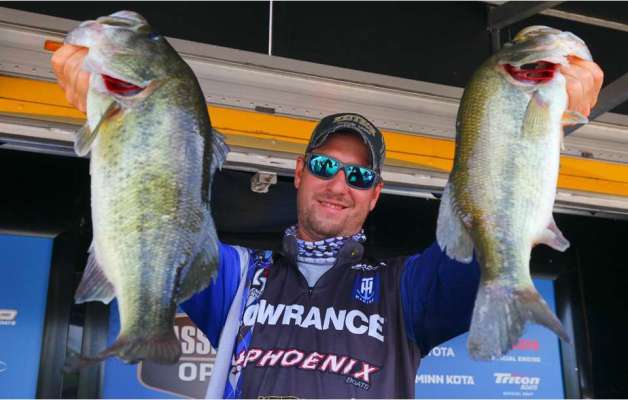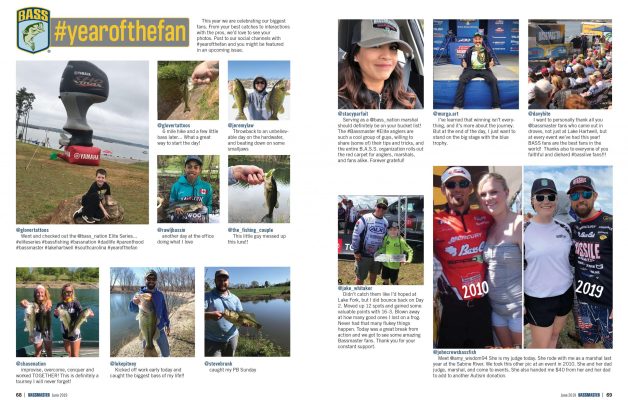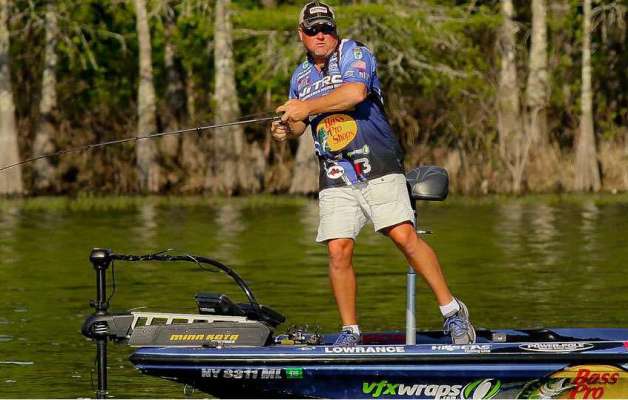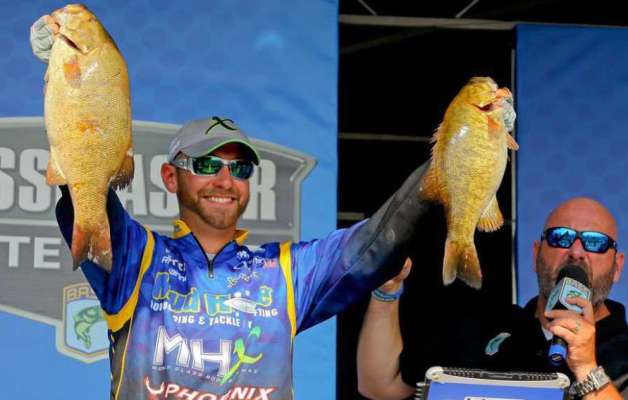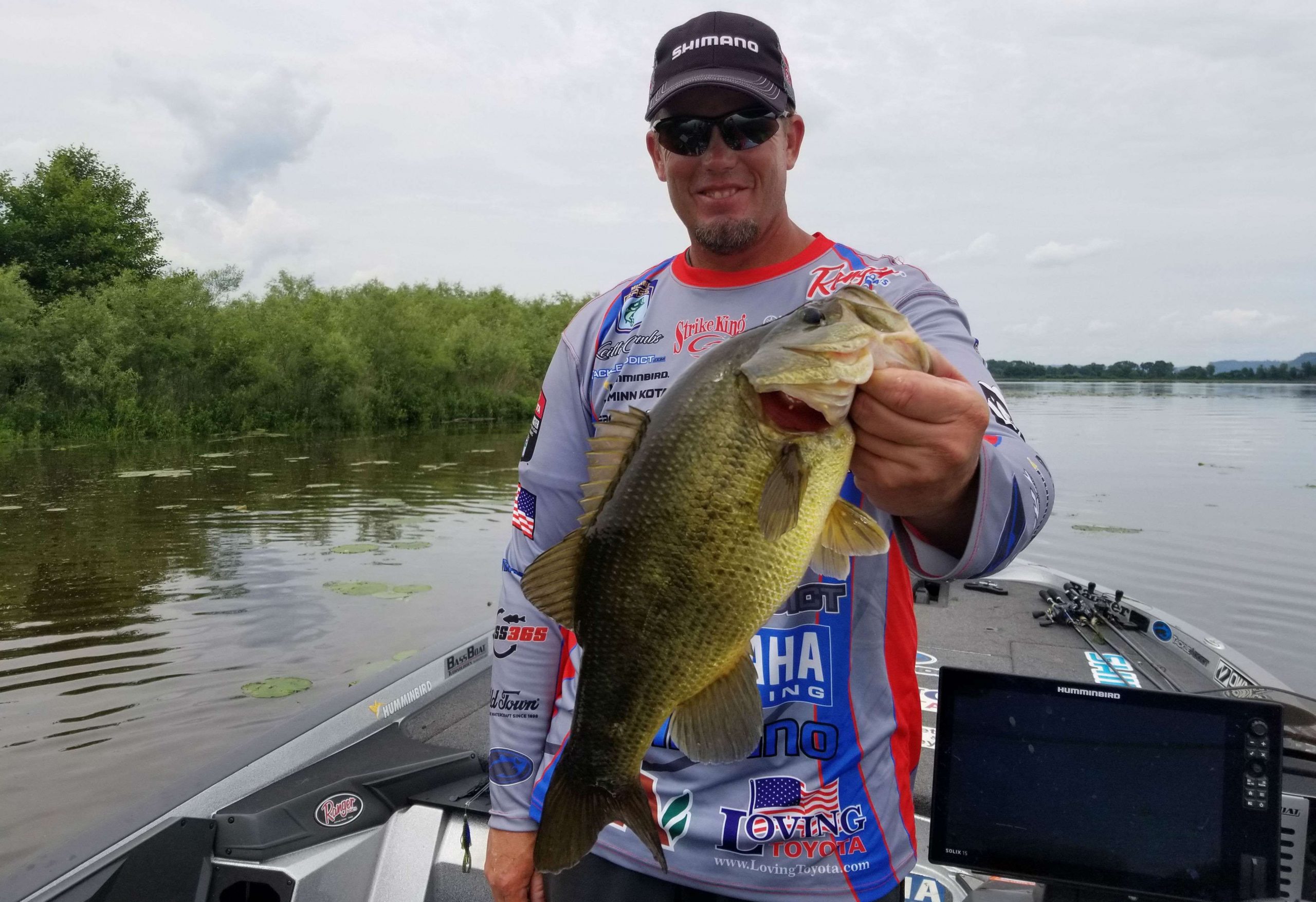
Keith Combs caught his first crankbait fish at 4 years old, and while his track record says that he’s mastered the craft, 39 years later he’s still searching for perfection. The external trademark of the Texan’s career has been dominance within the Lone Star State, but the underlying reason for his consistent success is an unrelenting work ethic.
To this day, Combs pre-practices on most Elite Series venues, which often entails drives of up to 1,200 miles to northern fisheries like St. Clair and Oahe. That alone is extraordinary, but it’s what he does there that truly sets him apart – Combs spends more time staring at his Humminbird graphs than casting and winding and often makes it through a four-day scouting trip without opening his rod locker.
He feels that the channeled work ethic allows him to make up for lost time. While his family fished for anything that bit when he was growing up, his introduction to tournaments was accidental. When he was a pre-teen a neighbor obsessed with sand bass and stripers took him under his wing, and one day they stumbled onto the motherlode of largemouth.
“We didn’t know anything about tournaments,” Combs recalled. “But we entered the Wednesday night jackpot, went to our spot and won. The next spring, we joined a bass club and started fishing team circuits like Anglers Choice and Honey Hole. Then I teamed up with another guy, and we went crazy. We’d fish a tournament in South Texas on Saturday and one in East Texas on Sunday. From 20 to 31, if there was a tournament that we could get to, we were there. I wanted to take it to the next level, but I didn’t know how to get there.”
At the time, he was working at a machine shop in Temple, Texas, manufacturing hydraulic cylinders, where he’d risen from working the night shift on the floor to supervising nearly 50 employees. He wanted to move to the next level, “but my biggest fear was going too soon. I didn’t want to fail my first year not have the money to make a second year happen. There were a lot of unknowns, and I didn’t have a plan B. That’s what was scary.”
The necessary push to take the leap came from a supportive co-worker who told him, “There’s nothing tying you down. Go chase your dream.”
The next week he put in his notice and moved to Del Rio, Texas, on the shores of Lake Amistad, then the hottest fishery in the country. Current Elite Series pro Ray Hanselman helped him gain guiding clients, and in 2007 Combs started to fish some FLW Series and FLW Tour events. There were some bombs, but also some top 10s and confidence-builders, including a massive 41-pound, 1-ounce limit on Day 3 of the 2010 FLW Series event on Falcon.
While relatively few of today’s tour-level pros build their brand through guiding, Combs thinks that may be a mistake, as his guiding efforts on Amistad and Falcon played a critical role in his development as an angler. “It made me more versatile,” he said. “Customers may not be able to cast, and they damn sure don’t want to take a rough boat ride. You’ve got to deal with what you got. It teaches you how to make the most of something, and also to make the most of nothing.” It enabled him to spend thousands of hours on the water. “When I went to Del Rio, I knew one person. I didn’t watch TV or do anything else. I fished. I was very strict with myself.” Indeed, when he’d drop his guide clients off in the evening he’d lock up his rods and head back out to graph until he couldn’t see the nose of his boat, building a seemingly endless storehouse of waypoints and knowledge.
Learning his trade in Texas paid dividends, most clearly in the form of three Toyota Texas Bass Classic victories, but also in how he approaches a given fishery or event.
“The only way I know how to fish is to try to win,” he said. “From the time I was 17 until I was 31, I never went to a tournament and tried to just get a check. To win in Texas you have to weigh in 25 to 40 pounds. That’s the only kind of fish I knew how to fish for. When I fished FLW the first year, the lightest line in my boat was 20-pound test, and it was mono. I had that mentality.”
During his time on tour, and especially since joining the Elite Series in 2011, he has made a concerted effort to learn to finesse fish, and to become a smallmouth expert. While his Elite Series win on Falcon in 2013 surprised no one, his victory in the AOY Championship on Mille Lacs in 2017 – on the backs of 72 pounds of smallmouth over three days – proved that the work he’d put in was paying off. He still used comparatively heavy gear there, specifically a 1-ounce football jig on 16-pound fluorocarbon, but it was proof positive that his homework had paid off.
Today, with eight Elite Series seasons under his belt, he’s anxious to make up for the time he lost by not going pro earlier. He wants to add more hardware to his mantel. “I set out to make a living doing this,” he said. “I’ve accomplished that goal. Now I want to win Angler of the Year.” He’s come close on multiple occasions, most painfully when he finished second to Gerald Swindle in 2016. Combs plans to fish “until I can’t be competitive.”
It all comes back to work ethic. Keith Combs knows that at 43 just as much as he intuitively understood it at 4, at 13 and at 31. Fortunately, he considers the homework to be the fun part.
“Bass fishing, that’s what I like to do,” he said. “I remember, when I got to Del Rio, I didn’t want any other hobbies. Two years ago I got married, and as I get older I’m starting to do a few more things, but this has been in my blood since I was small, and anything you work hard to get, you appreciate it more.”


